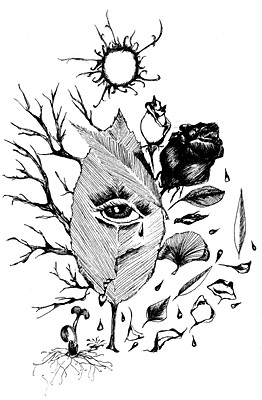All Nonfiction
- Bullying
- Books
- Academic
- Author Interviews
- Celebrity interviews
- College Articles
- College Essays
- Educator of the Year
- Heroes
- Interviews
- Memoir
- Personal Experience
- Sports
- Travel & Culture
All Opinions
- Bullying
- Current Events / Politics
- Discrimination
- Drugs / Alcohol / Smoking
- Entertainment / Celebrities
- Environment
- Love / Relationships
- Movies / Music / TV
- Pop Culture / Trends
- School / College
- Social Issues / Civics
- Spirituality / Religion
- Sports / Hobbies
All Hot Topics
- Bullying
- Community Service
- Environment
- Health
- Letters to the Editor
- Pride & Prejudice
- What Matters
- Back
Summer Guide
- Program Links
- Program Reviews
- Back
College Guide
- College Links
- College Reviews
- College Essays
- College Articles
- Back
Cultural Theft MAG
In clothing stores, fashion magazines, and even Halloween parties, cultural theft is occurring: elements of indigenous cultures are morphed into fashion trends and costumes for those who will never understand their significance. “Navajo print” leggings, “tribal” jewelry, and “Indian princess” Halloween costumes are examples of gross oversimplification of indigenous cultures.
Admittedly, it is an easy mistake to make when you're ill-informed. I'm ashamed to admit that I excitedly wore a cheap Party City feathered headdress to my eighth-grade dress-up day. It is only now that I, a white girl, realize the reasons why this is disrespectful to an entire race of people.
Firstly, the image of native culture as we wear it is simply incorrect. Costume headdresses bear little resemblance to the traditional ones worn by Plains tribes. Tribal names like “Navajo” appear on merchandise, even when the product is totally unrelated to that culture. Using these labels for marketing is disrespectful and furthers the stereotype that native peoples are one monolithic culture, when in reality there were over 550 distinct tribes.
America was unfairly taken from native tribes through war, genocide, and colonialism. Since white American western expansion, when the indigenous population was reduced by 95 percent, the surviving native people have had to endure centuries of mistreatment in many forms. Substance abuse, suicide, and poverty have stricken reservations, yet non-Native Americans still have the audacity to oversimplify their cultures.
In addition, the symbolism of indigenous items is twisted and erased. Feathers and warbonnets in native communities symbolize honor and respect and must be earned. Some tribes give eagle feathers to their children in special ceremonies when they become adults, or they are used to commemorate events of deep significance. Headdresses are specially reserved for respected figures of power.
Often people who co-opt indigenous cultures claim that they are honoring the culture and appreciating its background. However, this appropriation is far from appreciation. It is pretending to be a race that you are not, and often draws on harmful stereotypes. Taking symbols out of context and simplifying unique cultures destroys what makes them special.
It is important for all people to make a commitment to becoming educated about and sensitive to this misguided “fashion trend.” It's also important to educate yourself about the history of the people who lived here before colonialism and understand their continued struggle. I encourage you to donate to programs that help Native American youth succeed instead of supporting companies that profit off of indigenous culture.

Similar Articles
JOIN THE DISCUSSION
This article has 1 comment.

13 articles 1 photo 13 comments